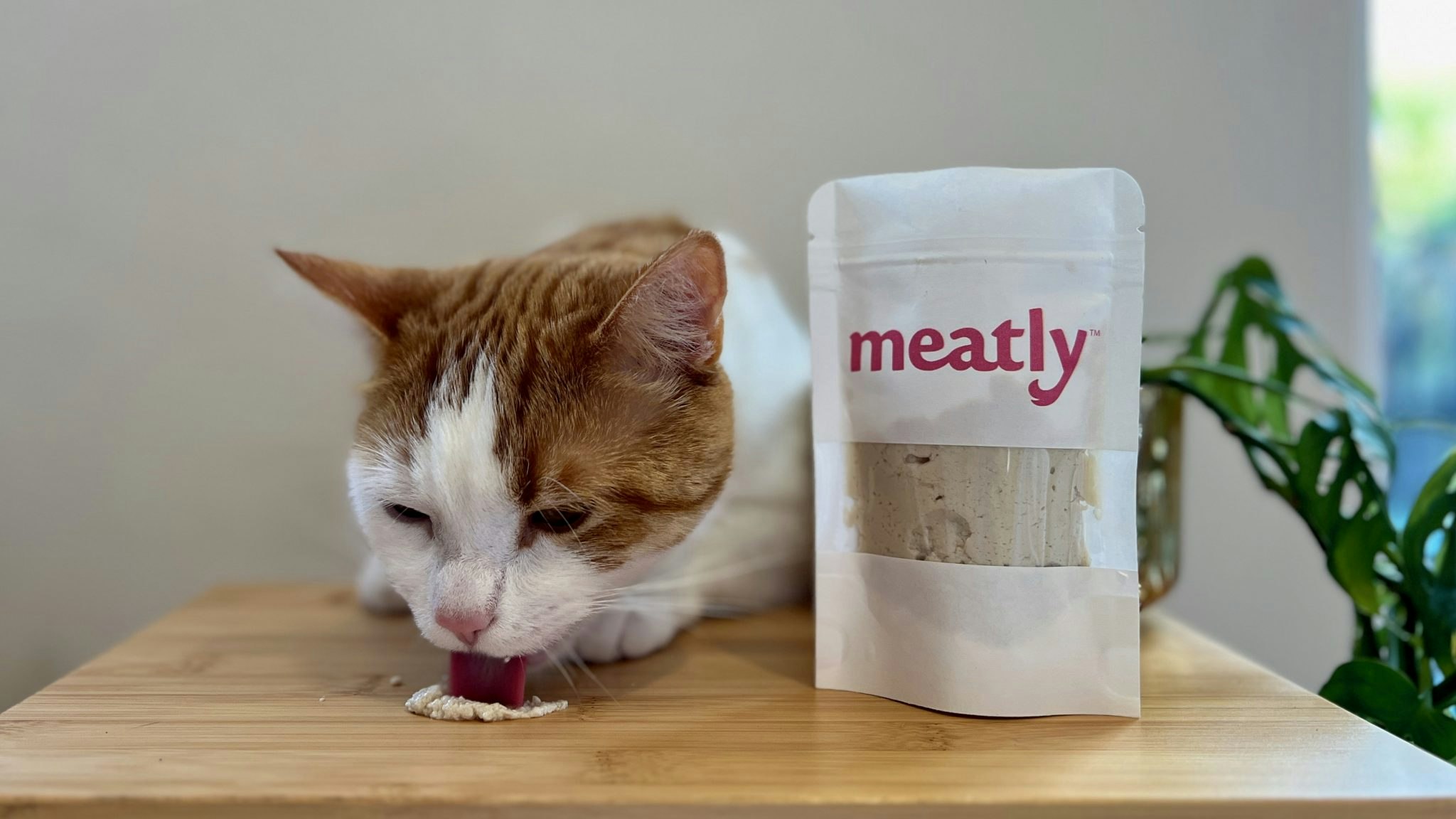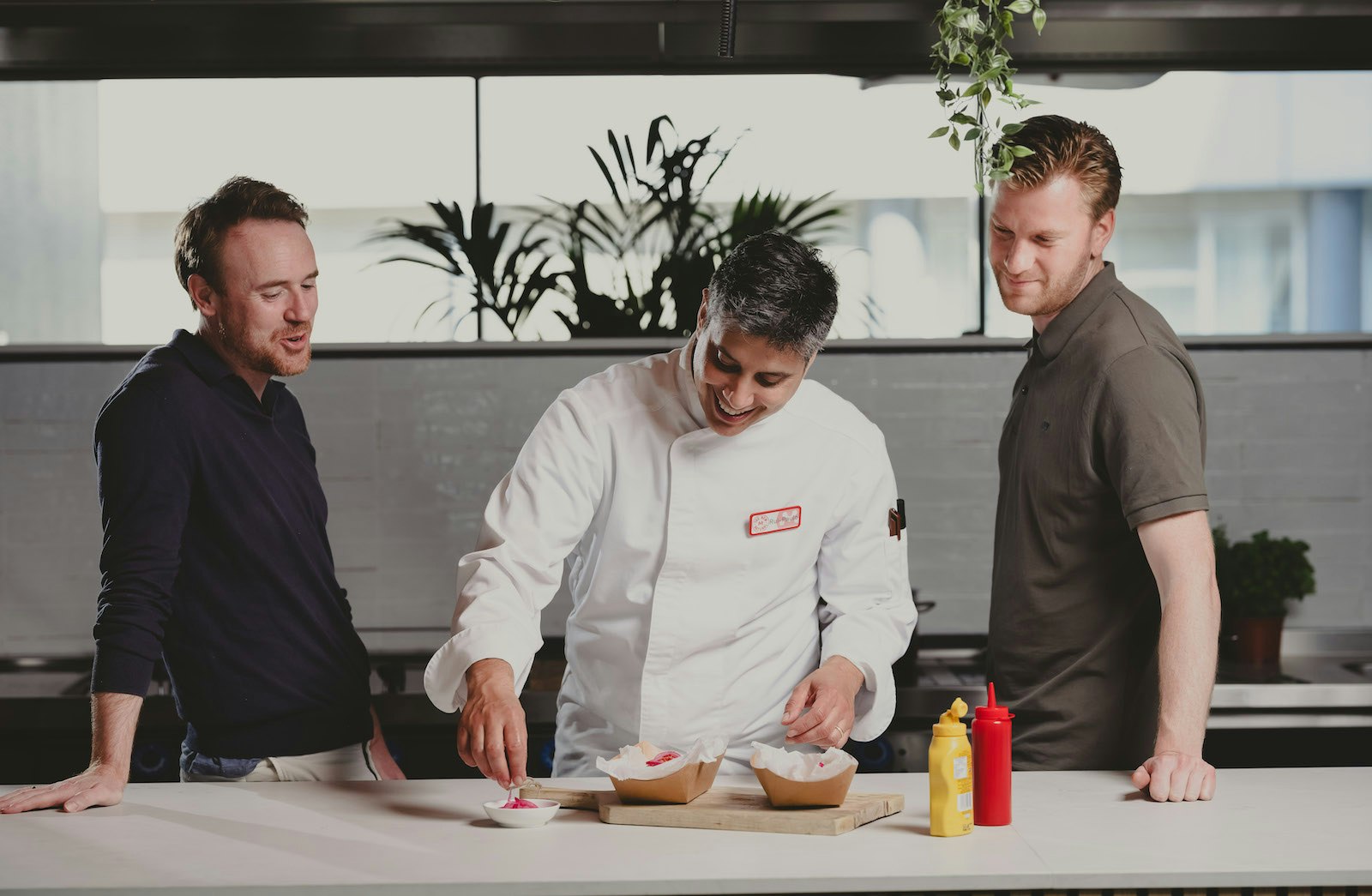Last month, two cattle ranchers and some “longtime supporters” of Dutch startup Mosa Meat met in the Netherlands to take part in a milestone moment for foodtech: the first European tasting of cultivated beef.
The farmers had provided cells from their own herd to produce the lab-grown meat on the plate in front of them, and it was the first time they’d been allowed to taste it. The catch though, is that they’re unable to buy the product anywhere.
Despite VCs investing $121m across 17 deals in 2023, according to Dealroom, the EU’s food regulator — the European Food Safety Authority — has yet to approve any cultivated meat products for human consumption. Investors and founders across the region tell Sifted they’re concerned regulatory barriers could hold the sector back here.
Regulatory barricades
A 2022 study found that food production accounts for over a quarter (26%) of global greenhouse gas emissions, and around 60% comes from meat production. Cultivated meat — which is meat grown in a lab from animal cells taken without slaughtering an animal or the need for intensive farming — offers an alternative. However, the only countries with regulatory approval for human consumption are Singapore, the US and Israel.
“There’s this perverse situation where Europe is so much more forward-thinking than most of the US when it comes to climate change and challenges around sustainability. The food system is one of the biggest burdens from greenhouse gas emissions and deforestation — but Europe is completely anti-application of biotechnology to food production,” says Anthony Chow, partner at publicly listed investment company Agronomics, which backs cellular agriculture.
“I don’t see any light at the end of the tunnel for Europe from a regulatory standpoint,” he adds. “There is proof that you can get products approved in Singapore and in the US — there is no evidence that you can in Europe. So why would you bear that additional risk?”
The European Commission says it sees the positive sides of cultivated meat, once safety has been confirmed; it’s also wary of societal debate. A spokesperson for the Department of Health and Food Safety tells Sifted: “European culinary culture is part of our way of life. There is no intention that it will be threatened by innovation.”
Consumer sentiment also remains mixed: in Italy, for example, MPs voted to pass a law that prohibits the production, sale or import of cultivated meat into the country.
There is some progress in the works in the UK, as its independent regulatory body, the Food Standards Agency (FSA), looks to provide more support to novel food startups. It submitted a bid to the government in April to run a sandbox on cell-cultivated products that would work with startups to agree on the application process, address regulatory questions and provide pre-application support. An FSA spokesperson tells Sifted the aim is to ease the bureaucracy for companies in the sector.
“I think there’s a lot of positive signals, but it’ll still be a few years before we start getting approvals”, says Owen Ensor, CEO and cofounder of cultivated chicken pet food startup Meatly, which in July received approval for sale in the UK in a global first. It also became the first company in Europe to have a cultivated meat ingredient approved for sale and plans to have products on shelves by the end of the year.

But there’s no such approval for companies working on products for humans.
“It’s a big question, particularly in this funding environment: what do those human food companies do in the interim?” Ensor says.
“The fundraising risk associated with this is so high and we’ve seen a mismatch of expectations from the investors that have invested in this category before,” says Matteo Leonardi, partner at foodtech VC Grey Silo Ventures.
“One thing that’s really crucial in this space is the amount of funding that a company needs compared to the amount of time [it] needs to do two things: get regulatory clearance, and get its product and process scaled up to a point which is feasible under a unit economics perspective.”
FOAK tastings and moving markets
Dutch startup Meatable has also held a tasting this year in the Netherlands. The company brought together guests including a Michelin star chef and the Prince of the Netherlands to try its cultivated pork sausage in March.
These tastings are crucial for changing consumer mindsets, says Robert Jones, head of public affairs at Mosa Meat. “We’ve been talking about cultivated meat and novel proteins for years but it’s still an abstract concept for consumers.”
“It’s [also] super important for us as a company to get outside feedback on our taste and texture and sensory experience,” he adds.
Daan Luining, CTO and cofounder at Meatable, agrees: “Imagine you’re pouring quite a lot of money into creating a perfume, but you can’t spray or smell it, it’s against the law. [Investors say] if we now pour more money into scaling and commercialising it, I want to know how it smells.”
To generate enough revenue to keep investors interested — and keep the company alive — startups, including Meatable, are turning to more regulatory-friendly markets like Singapore and the US.
“Most of the experts or people that have been through such a process before told us that it could easily take up to three to five years [for approval in Europe], and that’s a cash burn I cannot overcome,” says Luining. “That’s why you look for other jurisdictions where the timelines are more favourable.”

“In this environment, entrepreneurs need to be figuring out any way they can look to generate revenues sooner rather than later. Investor capital is impatient and wants to see returns as quickly as possible,” Chow adds.
This is a problem for Europe’s ecosystem, says Jones. “We need to make sure that the rest of the world doesn’t end up benefiting from European innovation in terms of food security, workforce development and economic development — we have to make sure that we don’t lose our competitive edge in Europe.”
Reality checks
While there’s doubt about Europe’s attractiveness as a market, there remains optimism that recent developments could give the cultivated meat ecosystem a boost.
After France-based Gourmey became the first cultivated meat company to apply for regulatory clearance in the EU last month, more founders could be inspired to follow suit, says Leonardi. “It’s a waterfall effect: other companies will probably surf the wave of Gourmey and start applying with their dossiers, which is a really good thing [for the industry],” he tells Sifted.
“It’s not that the industry is dead — I think a reality check was necessary and investors should still be investing in these products, because at the end of the day it is the closest you can get to the classic products we are used to eating today,” he says.
Jones adds that progress is being made: “I’m actually feeling very positive that there seems to be a refocus on concern about Europe losing its competitiveness, especially around research and innovation.”
Chow also maintains that there’s an upwards curve coming — despite Agronomics shares performing “poorly” in the last three years due in part to a decline in interest in foodtech after the hype a few years ago.
“You had a big hype cycle [a few years ago] and a lot of money flowed in, so the pendulum went way too far on the bullish spectrum and it’s swung way too far back [the other way],” he says.
“The reality is that it is likely to make a huge impact [and] it is likely to be lucrative. Have we got our timing right? Well, we’ll find out in a few years time, I guess.”
Read the orginal article: https://sifted.eu/articles/cultivated-meat-europe-regulation/


